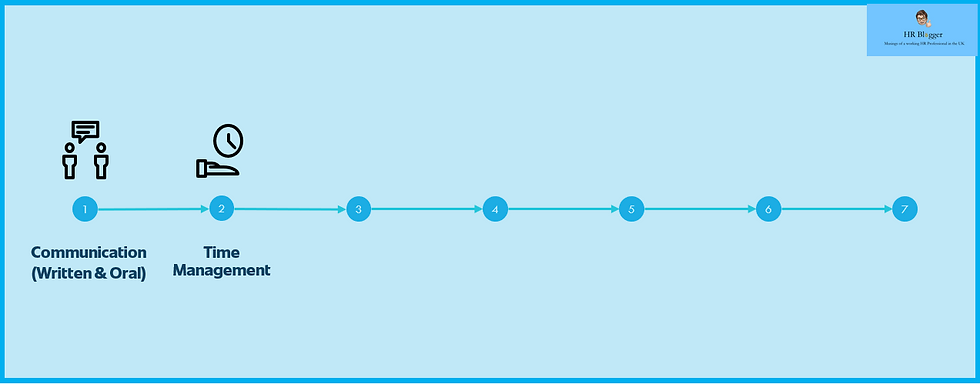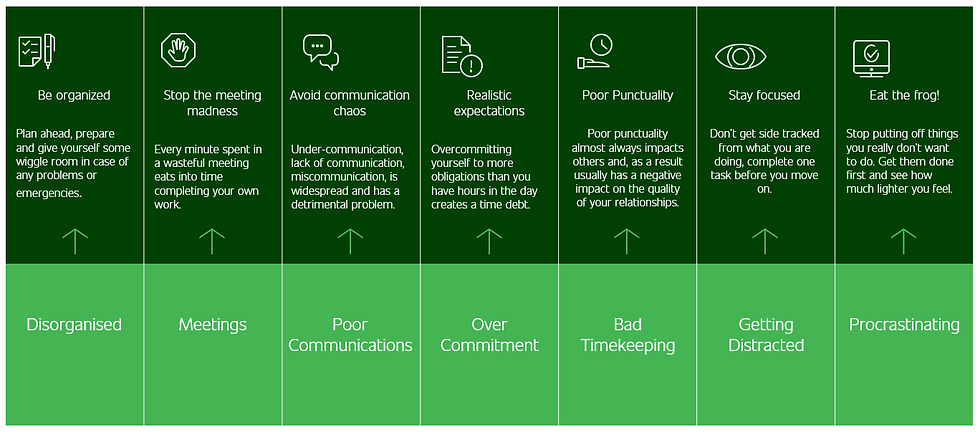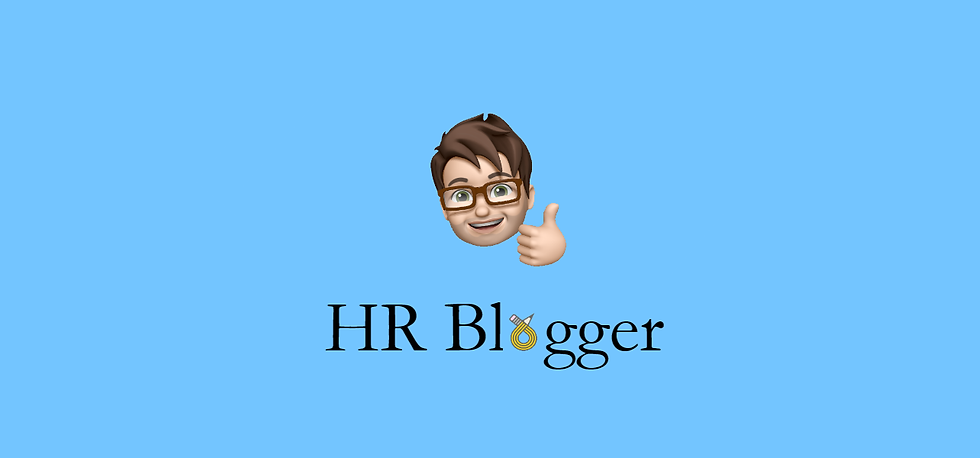My 7 steps to personal effectiveness - Step 2; Time Management
- HR.Blogger
- May 27, 2020
- 4 min read
Updated: Jul 16, 2020
Following on from my first step to personal effectiveness (communication), I would like to discuss the second step (time management).

Now more than ever, people are asked to do more in less time and it is often a real challenge to complete your own tasks and meet your own objectives. Therefore good time management lies at the heart of personal effectiveness.
An employee cannot truly be effective until they understand where they are investing their time and where they might be losing time.
Understand Yourself
You got to know how and where every hour is being spent in order to manage time better.
I have read about the Pareto Principle (80:20 Rule) whereby it states that 80 % of our output is generated with 20 % of our efforts. Therefore the leftover 80 % of our efforts only produce 20 percent of our output. With time management we need to greater understand what we are doing with the 80 % percent of the time to only produce 20 % output. This presents us with the greatest opportunity to become more personally effective.
If you are like me you will always be distracted in some way or another, but it is good to know how and where every hour is being spent at work in order to manage time better. From my experience it is the people who like to keep track of things who are usually more focused, productive, and organised.
Urgent vs Important
Managing your time effectively requires a distinction between what is important and what is urgent. This principle has really shifted my thought process, as I often wanted to be recognised as being most productive (i.e. completing the most tasks), but really in order to be truly effective my focus should be on completing the highest priority items.

The best and most effective tool I have come across to help people prioritise and focus on the right activities is The Eisenhower Matrix. This has certainly helped me move away from a feeling of constant firefighting into a position whereby I am more focused on planning ahead and staying organised.
Eisenhower's Urgent/Important Principle helps you quickly identify the activities that you should focus on, as well as the ones you should ignore. Using this tool gives you the balance to deal with truly urgent issues, whilst also working towards important, longer-term goals.
Before using this tool I had never given thought to eliminate activities, possibly from fear it would be seen to be unhelpful. But in order to be truly effective, you need to spend as little time on the not important activities (it is a no brainer).
Naturally most people default to doing urgent tasks first, but urgent tasks always come up and they are not able to accomplish important tasks. And there will always be more urgent tasks than you have time to accomplish, no matter how hard you try. The easiest way to make sure an important task gets done is to give it a deadline. It is the deadline that makes the important tasks urgent.
Time traps
Time traps are the pitfalls we can fall into if we’re not paying attention. They seem to lay in wait for us as we innocently go about our day and will rob our time, energy, and focus. The only way to avoid time traps is to be aware that they exist and stay alert, ready to block or divert them.

Time traps can include; telephone/email interruptions, inadequate planning, attempting too much, drop-in visitors, ineffective delegation, disorganization, lack of self-discipline, inability to say no, procrastination, ineffective meetings, paperwork, poor communication, and incomplete information.
Becoming aware of your own time traps and having a strategy for avoiding them will give you a big boost in your effectiveness.
Multitasking is a myth
Statistics from Psychology Today shows that only 2% of people can multitask effectively. For the remaining 98% of people, multitasking may be more stimulating but it is actually time-wasting and reduces productivity.

The shortest way to do many things is to do one at a time, therefore the focus should be on single-tasking. It’s better to focus entirely on one thing and excel at it, rather than do a mediocre job of everything. Single-tasking is the secret to higher productivity, lower stress, more happiness, and generally a more effective way of working.
Refresh and rejuvenate
Although it may sound counter-intuitive, it is undeniable that taking regular breaks will allow you to return to your tasks with a clear head and with fresh ideas. A popular technique that encourages this is the Pomodoro Technique. Using this method, you break your workday into 25-minute chunks separated by five-minute breaks.
The idea behind the technique is that the timer instills a sense of urgency. Rather than feeling like you have endless time in the workday to get things done and then ultimately squandering those precious work hours on distractions.

Eat the Frog
For those of you who are unaware, a "frog" is a task that you like to avoid and one that will have the biggest positive impact on your day, i.e. tasks that you dread the most. This statement is simple, it means that you should tackle the hardest and most important thing on your to-do list every morning.

The morning is the time of day when people are most productive, so it makes sense to channel your best self towards the task that is that highest value.
Once you have eaten your “frog”, you can rest assured that the worst is behind you, so you’re likely to take on a positive approach about the rest of your day.
Stay Healthy
The care and attention you give yourself is an important investment of time. Scheduling time to relax, or do nothing, can help you rejuvenate both physically and mentally, enabling you to accomplish tasks more quickly and easily.
Poor time management can result in fatigue, moodiness, and more frequent illness. To reduce stress, you should reward yourself for time management success. Take time to recognize that you have accomplished a major task or challenge before moving on to the next activity.
Ask yourself a few simple questions;
Do you have a healthy balance between work and home life?
Are you accomplishing the tasks that are most important in your life?
Are you investing enough time in your own personal wellbeing?
If the answer is "no" to any of these questions, then reconsider your time management strategies and select ones that work better for you. Remember that successful time management today can result in a greater sense of happiness, achievement, productivity, satisfaction, and all-round personal effectiveness.
Thanks for reading, I do hope you enjoyed it and that you find these personal effectiveness articles useful.
HR Blogger









Comentários